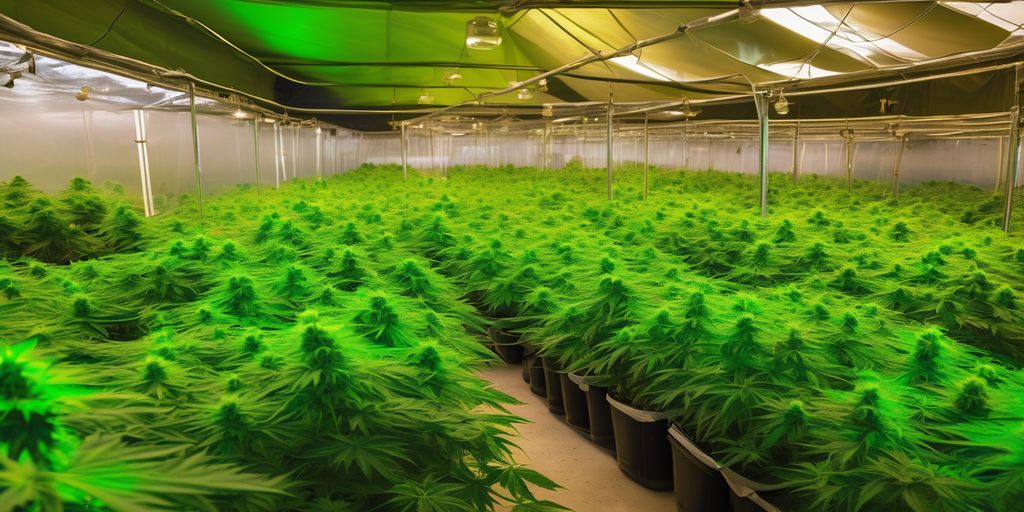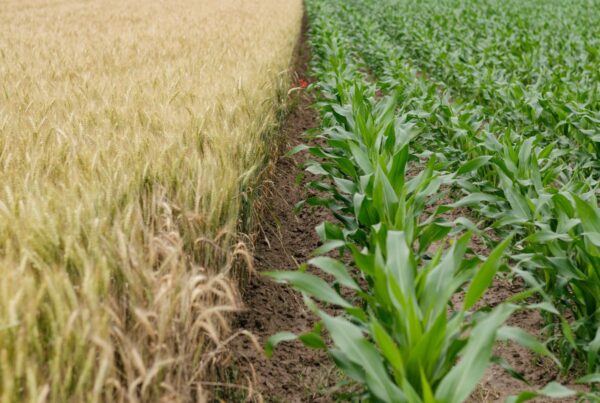As the cannabis industry continues to evolve, more growers are turning to organic nutrients to enhance the health and yield of their plants. Organic nutrients, derived from natural sources, provide essential elements needed for robust cannabis growth, while also promoting environmental sustainability. This article explores various aspects of using organic nutrients in cannabis cultivation, from selecting the right products to understanding their benefits and applications.
Key Takeaways
- Organic nutrients, including liquid forms and soil amendments, are derived from natural sources and are crucial for healthy cannabis growth.
- Benefits of using organic nutrients include improved soil health, enhanced biodiversity, and a reduced environmental footprint.
- Popular brands like Botanicare and Gaia Green offer specialized organic nutrient products tailored for cannabis cultivation.
- DIY options like Bokashi fertilizer allow growers to create their own organic nutrient solutions, emphasizing sustainability and cost-effectiveness.
- Understanding the balance of nutrients, such as nitrogen (N), phosphorus (P), and potassium (K), and monitoring pH levels are essential for optimizing cannabis health and yield.
The Lowdown on Liquid Gold: Organic Nutrients Unveiled
What are Organic Nutrients?
Organic nutrients, my friends, are like the secret sauce for your cannabis plants. They’re all-natural, no funny business—just pure, earthy goodness to make your plants thrive. Derived from natural sources, these nutrients are the real MVPs for promoting healthy growth without any synthetic nasties.
Benefits of Going Organic
Going organic isn’t just a trend; it’s a lifestyle choice that pays dividends in the quality of your buds and the health of your soil. By choosing organic, you’re not only pampering your plants but also nurturing the entire ecosystem. You’ll see benefits like improved soil health and a noticeable boost in biodiversity. Plus, let’s not forget the reduced environmental impact—good for your conscience and your crops!
Happy Hydro’s Top Pick: Botanicare
Now, let me tell you about our top pick at Happy Hydro—Botanicare. This brand is a heavyweight in the organic nutrient scene, offering products that are both effective and environmentally friendly. If you’re looking to give your plants the best, without harming Mother Earth, Botanicare is the way to go. Trust me, your plants will thank you, and so will the planet!
Rooted in Goodness: The Scoop on Soil Amendments
Why Soil Amendments Rock
Let’s get down to the nitty-gritty, folks! Soil amendments are like the secret sauce for your cannabis plants. They’re not just dirt; they’re a super boost of goodness that keeps the soil healthy and your plants happier than a pig in mud. By adding organic matter, you’re not just feeding the plant, you’re enhancing the whole ecosystem down there!
Happy Hydro’s Top Pick: Gaia Green
Now, if you’re looking for a top-notch choice, Gaia Green is the way to go. It’s like the Rolls Royce of soil amendments. Packed with all the nutrients your cannabis could dream of, it turns your grow into a green paradise. Remember, a little goes a long way!
Other Popular Organic Nutrient Brands
And hey, if Gaia Green isn’t your jam, there are plenty of fish in the sea. Brands like Fox Farm and Down to Earth are also making waves in the organic world. Each has its unique blend that might just be the perfect match for your setup. So, don’t be shy to experiment a bit and find your plant’s soulmate!
DIY Green Thumb: Crafting Your Own Organic Cannabis Fertilizer
How to Make Your Own
Alright folks, let’s get our hands dirty and talk about whipping up some homemade organic fertilizer for our beloved cannabis plants. It’s like cooking, but instead of making a pie, you’re brewing up a batch of plant superfood! Here’s a simple recipe to get you started:
- Start with a base of compost—your plant’s favorite snack.
- Add some worm castings for a punch of nutrients.
- Mix in a bit of bone meal for that phosphorus kick.
- Don’t forget the kelp meal for a touch of potassium.
- Stir it all up and let it sit for a few weeks to brew.
The Power of Bokashi
Now, if you want to take things up a notch, let’s talk about Bokashi. This stuff is the secret sauce for your cannabis. It’s not just any old compost; it’s a fermented wonder that boosts your soil’s health and makes your plants go wild. Just mix it into your soil and watch the magic happen.
Avoiding Non-Organic Pitfalls
When you’re mixing up your own concoctions, it’s easy to slip and slide into some non-organic shortcuts. But remember, what you put in your soil ends up in your plants and eventually, in you. So keep it clean and green, folks. Stick to the organic goodies and your plants will thank you with some top-notch buds.
The Eco-Friendly Grow: Sustainable Practices in Cannabis Cultivation
Why Sustainability Matters
In the heart of southern Oklahoma, where the sun beats down just right for growing some fine cannabis, sustainability isn’t just a buzzword—it’s a way of life. We’re not just growing plants; we’re cultivating a future. And let me tell you, nothing says ‘future’ like making sure we’re not wrecking the planet while we’re at it. Sustainability in cannabis cultivation means using practices that protect the environment, conserve resources, and enhance the community.
Enhancing Biodiversity
Now, enhancing biodiversity isn’t just about making the place look pretty—it’s about creating a thriving ecosystem right in our backyard. By using organic nutrients and fostering natural habitats, we encourage a variety of organisms to play their part in the grow cycle. This not only helps the plants but also keeps the pests in check naturally, reducing the need for chemical interventions.
Reducing Environmental Impact
Reducing our environmental impact is crucial, especially in an industry as resource-intensive as cannabis cultivation. We focus on methods like recycling water, using solar power, and sticking to organic nutrients. These practices not only keep our operation green but also save us a pretty penny in the long run. It’s all about being smart with what we have and ensuring we leave the land better than we found it.
Remember, every little bit helps when it comes to sustainable cannabis cultivation. It’s not just about the buds; it’s about the bigger picture.
From Seed to Splendor: The Lifecycle of Cannabis with Organic Nutrients
Nurturing with Nutrients
Starting off, let’s talk about babying your plants with the good stuff—organic nutrients. Think of it like feeding your plants a gourmet meal instead of fast food. Organic nutrients help your cannabis plants grow up strong and healthy, with a robust flavor profile that’s as rich as Oklahoma red dirt!
The Importance of N, P, & K
Now, onto the big three: Nitrogen (N), Phosphorus (P), and Potassium (K). These are the VIP nutrients that your cannabis can’t do without. They’re like the bread, butter, and jam of plant nutrition. Here’s a quick breakdown:
- N (Nitrogen): Essential for leaf growth
- P (Phosphorus): Helps with root and flower development
- K (Potassium): Aids in overall plant health
Monitoring pH Levels
Keeping an eye on the pH level of your soil or hydroponic solution is crucial. You want to hit that sweet spot between 6.0 and 7.0 to ensure your plants are absorbing all those tasty nutrients effectively. Too high or too low, and you’re looking at nutrient lockout, which is a real party pooper for your plants.
Remember, a happy plant is a productive plant. Keep those nutrients balanced and your pH in check, and you’ll be on your way to some top-tier cannabis.
Beyond the Bud: Other Essential Considerations for Cannabis Cultivators
When you’re knee-deep in dirt and dreams, choosing the right nutrient brand isn’t just about what’s on sale at Happy Hydro. It’s about what’s going to make your plants sing ‘Thank you!’ in their own leafy way. Navigating through the myriad of options can be as tricky as a raccoon in your trash can at midnight.
Choosing the Right Nutrient Brand
It’s not just about the nutrients, but who’s behind them. We’ve all been tempted by those shiny, over-hyped products promising the moon. Stick to reputable brands that support sustainable practices and have a track record of happy plants (and growers).
Synthetic vs. Organic Debate
Here’s the deal: synthetic might give you that quick fix, but organic is the marathon runner, building healthier soil and plants that withstand pests like a champ. Plus, who doesn’t want to say they’re as organic as grandma’s apple pie?
The Role of Beneficial Microbes
These little unseen heroes can make or break your grow. Beneficial microbes like mycorrhizae and trichoderma help your cannabis plants absorb nutrients and fight off diseases. Think of them as the secret sauce to your garden burger.
Remember, the best nutrient mix is the one that suits your specific garden’s needs. Tailor your choices, and watch your green beauties thrive!
Can You Go Organic in Hydroponics?
Exploring Hydroponic Options
Alright folks, let’s dive into the nitty-gritty of growing our beloved cannabis organically in a hydroponic setup. Now, I know what you’re thinking, “Can you really go organic without good ol’ soil?” Well, it’s a bit like trying to make a salad without lettuce—challenging but not impossible! Organic nutrients are a tad thicker and can be a bit of a diva in hydro systems, sometimes clogging things up like my Aunt Edna’s kitchen sink. But with the right approach, it’s definitely doable.
Botanicare’s Solutions for Hydro
Now, let’s talk about Botanicare. These guys are like the wizards of hydroponic organic nutrients. They’ve crafted some slick solutions that are less likely to turn your system into a swamp. Their products are designed to be hydro-friendly while sticking to organic principles. It’s like having your cake and eating it too—only better because you’re making sure your plant gets everything it needs!
Balancing Nutrients in Water Systems
Balancing your nutrients in a hydroponic system is crucial, especially when you’re going organic. It’s all about finding that sweet spot where your plants thrive without turning your setup into a science experiment gone wrong. Remember, adjusting the pH and keeping things clean are your best friends here. It’s a bit of a balancing act, but hey, who doesn’t love a good challenge?
Wrapping It Up!
And there you have it, folks! Whether you’re a seasoned cannabis cultivator or just starting to dip your toes into the world of green thumbs, choosing the right nutrients can make all the difference. Remember, going organic isn’t just about being trendy; it’s about nurturing your plants in a way that’s kind to Mother Earth and super beneficial for your buds. So, laugh at the confusion, pick a nutrient that suits your style, and watch your cannabis plants thrive. Happy growing!
Frequently Asked Questions
What are organic nutrients?
Organic nutrients come from natural sources like animal or plant waste, such as kelp meal or fish-based fertilizer. They are renewable, ecologically stable, and help in creating a sustainable environment for cannabis cultivation.
What are the benefits of using organic nutrients for cannabis?
Using organic nutrients enhances soil health, increases biodiversity, and reduces environmental impact. They support a sustainable approach to cannabis cultivation, fostering a thriving ecosystem for plants.
How can I make my own organic cannabis fertilizer?
You can create your own organic cannabis fertilizer using methods like Bokashi, which is rich in nitrogen and helps in the robust growth of cannabis.
What should I avoid when choosing cannabis nutrients?
Avoid non-organic, time-released nutrients such as fertilizer spikes or ‘slow-release’ products, which can disrupt the nutrient balance during the flowering stage of cannabis.
Can I use organic nutrients in a hydroponic system?
Yes, organic nutrients can be used in hydroponic systems. Brands like Botanicare offer solutions specifically designed for hydroponic cannabis cultivation, ensuring balanced nutrient delivery in water systems.
What is the importance of N, P, & K in cannabis cultivation?
Nitrogen (N), Phosphorus (P), and Potassium (K) are crucial for the healthy growth and development of cannabis. They play vital roles in cellular function and energy transfer, essential for the lifecycle of cannabis.








